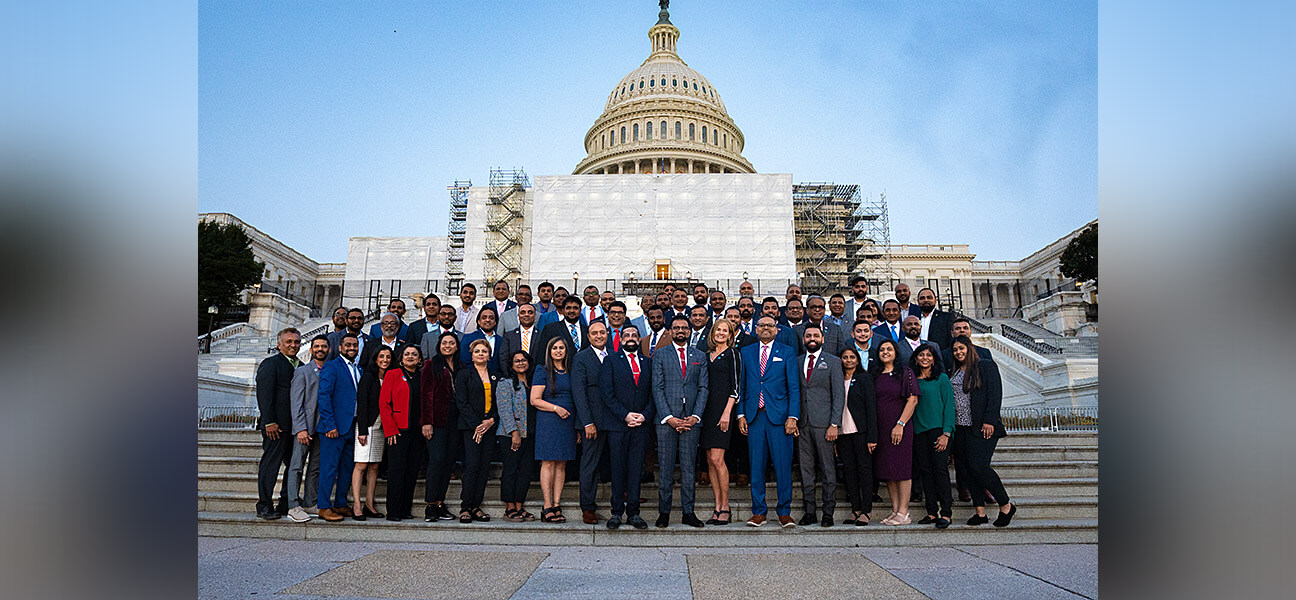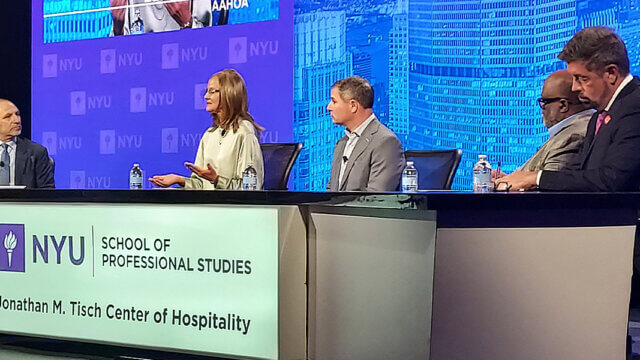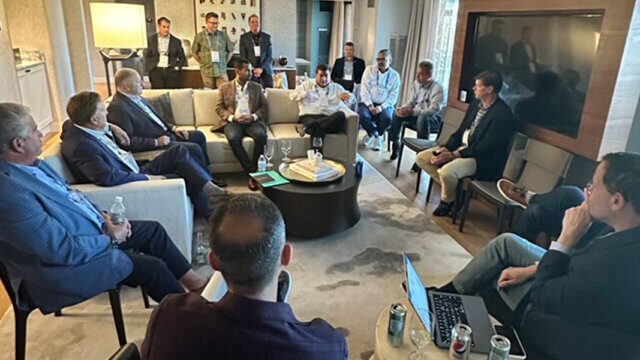On Wednesday, AAHOA members and leaders met in Washington, DC, for AAHOA’s Fall National Advocacy Conference to make their voices heard and shed light on the issues that matter most to America’s hotel owners by meeting with more than 100 offices and 40 U.S. Senators and Representatives.
“AAHOA has long understood the importance and significance of advocacy work at the state, local and federal levels,” said Neal Patel, chairman, AAHOA. “Having our voices heard on issues that are important to our members protects and promotes the rights of hotel owners and entrepreneurs in America.”
The conference provided the opportunity for participants to connect with legislators and engage with a bipartisan group of policy experts and lawmakers who will ultimately vote on bills and pass legislation that can have a tremendous impact on AAHOA’s nearly 20,000 members and the hospitality industry at large.
To ensure the sustainability of hotels and the broader American travel industry, members urged Congress to support the following four issues:
Promote access to capital by increasing SBA loan caps/limits and transparency
- Increase SBA 7(a) and 504 loan limits to $10 million: Currently, Small Business Administration (SBA) 7(a) and 504 loans are capped at $5 million, which was last set in 2010. For hoteliers, over the past decade, the costs of constructing and purchasing properties have skyrocketed and far exceed $5 million.
- Cosponsor the SBA Franchise Loan Default Disclosure Act (S.2162): Sponsored by Sen. Catherine Cortez Masto (D-NV), S.2162 requires the SBA to publish on its website, and to regularly update, the loan default rates by franchise brands during the preceding 10-year period. Loan default rates for a franchise brand are a key indicator of success of which prospective franchisees should be aware.
Provide assistance with critical labor shortages: A new H2-C visa program and expansion of the Earned Income Tax Credit (EITC)
- Cosponsor the Essential Workers for Economic Advancement Act (H.R. 7239): Sponsored by Rep. Lloyd Smucker (R-PA) to help business owners address the critical labor shortage, the act will fill a need currently unaddressed in the U.S. immigration system.
- Permanently expand the Earned Income Tax Credit (EITC): With the critical labor shortages facing business owners across the country, AAHOA asked to permanently expand the Earned Income Tax Credit (EITC) provisions that expired at the end of 2021. By expanding the EITC, young adults without children aged 18 years and older, as well as retirees, will qualify for the important tax credit, which will incentivize more people to return to work and help to reduce the labor shortages for U.S. employers, including hotels.
Ensure fairness in franchising with a private right of action to address wrongful and material disclosure violations
- Cosponsor the Franchisee Freedom Act (H.R. 6551): Sponsored by Rep. Jan Schakowsky (D-IL), the act provides a private right of action for persons harmed by violations of the FTC Franchise Rule, and thus will allow individuals damaged by rule violations access to the courts, a basic American right. When FTC Rule violations occur, franchisees are not fully informed of the material facts and the corresponding risks they face when signing a franchise agreement. Since franchisees are frequently required to sign personal guarantees, the results can financially devastate a franchise buyer.
Provide financial relief for hard-hit hoteliers: Forgive EIDLs, waive interest and/or defer for an additional year
- Many hoteliers across the U.S., especially in the Midwest and metropolitan areas, such as New York City and San Francisco, have continued to suffer severe economic hardships due to COVID-19 and the restrictions imposed to control its spread. Regrettably, unlike restaurateurs who received grants from the Restaurant Revitalization Fund (RRF), hoteliers have not enjoyed the same access to funds.
When AAHOA members ask for and receive the assistance they need, their local business communities will also see an uptick in employment rates; profitability; state and local tax contributions; and business sustainability, according to the association.
“We are the experts of our businesses and the hotel industry,” he said. “It is our responsibility to ensure the views and realities of AAHOA members are considered when decisions are being made by elected officials about their livelihoods and their businesses.”
Laura Lee Blake, president/CEO, AAHOA, added, “From Fair Franchising to the Small Business Administration, providing lawmakers with personal, real-life stories, puts a name and a face to the American hotelier. The next time these elected officials go to make decisions, they will remember us—the foundations we are laying in these meetings are critical to our advocacy work going forward.”
Some of the elected officials that AAHOA members met with:
Rep. Dutch Ruppersberger (D-MD)
Rep. Jan Schakowsky (D-IL)
Rep. Joe Wilson (R-SC), AAHOA lifetime member
Rep. Lou Correa (D-CA)
Rep. Raja Krishnamoorthi (D-IL)
Rep. Ralph Norman (R-SC), AAHOA lifetime member
Sen. Bill Hagerty (R-TN)
Sen. Charles Grassley (R-IA)
Sen. Cortez Masto (D-NV)
Sen. John Boozman (R-AR)
Sen. Rand Paul (R-KY)
Sen. Rick Scott (R-FL)
Sen. Ted Cruz (R-TX)
Sen. Thom Tillis (R-NC)
The office of Nancy Pelosi (D-CA), Speaker of the U.S. House of Representatives
“Legislative events of this kind are extremely important,” said Dean Heyl, VP, government affairs, AAHOA. “Elected officials have to know you before they can like you.”
To learn more about AAHOA’s policy priorities and issues advocated for at the 2022 AAHOA Fall National Advocacy Conference, visit AAHOA’s Fall National Advocacy Conference Policy Backgrounder and Guide.


